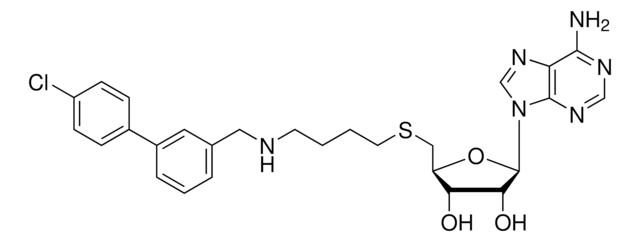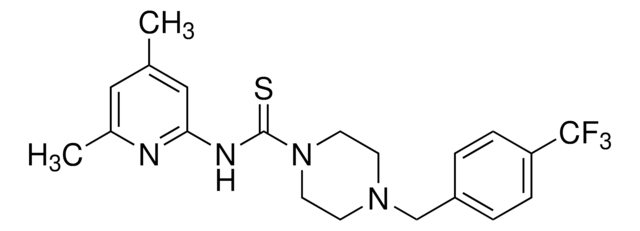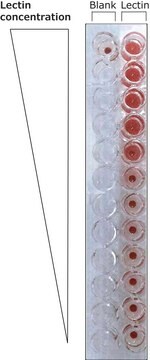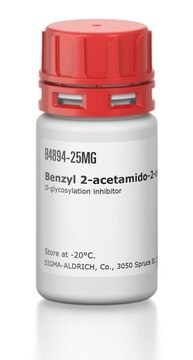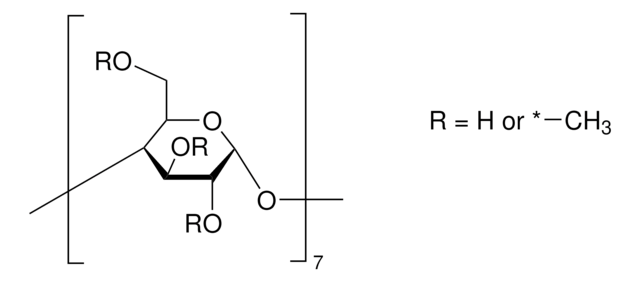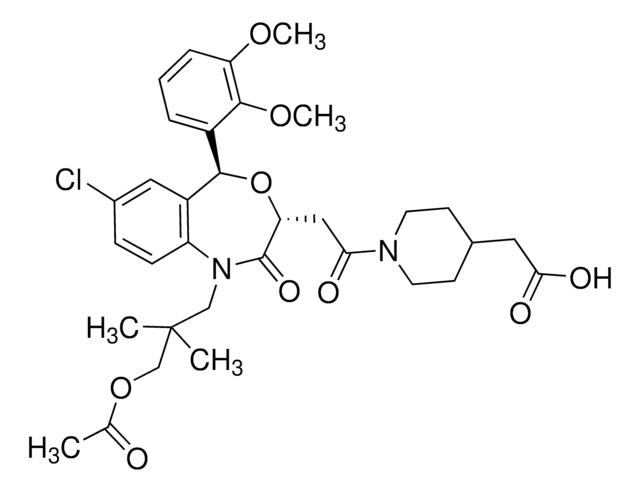SML1559
Furamidine dihydrochloride
≥98% (HPLC)
Synonym(s):
2,5-Bis(4-amidinophenyl)furan dihydrochloride, 4,4′-(2,5-Furandiyl)bis-benzenecarboximidamide dihydrochloride, DB 75, DB75, NSC 305831, WR199385
About This Item
Recommended Products
Quality Level
Assay
≥98% (HPLC)
form
powder
storage condition
desiccated
color
white to beige
solubility
H2O: 1 mg/mL, clear (warmed)
storage temp.
−20°C
InChI
1S/C18H16N4O.2ClH/c19-17(20)13-5-1-11(2-6-13)15-9-10-16(23-15)12-3-7-14(8-4-12)18(21)22;;/h1-10H,(H3,19,20)(H3,21,22);2*1H
InChI key
VXNYQUQHOUERTR-UHFFFAOYSA-N
General description
Biochem/physiol Actions
Storage Class Code
11 - Combustible Solids
WGK
WGK 3
Choose from one of the most recent versions:
Certificates of Analysis (COA)
Don't see the Right Version?
If you require a particular version, you can look up a specific certificate by the Lot or Batch number.
Already Own This Product?
Find documentation for the products that you have recently purchased in the Document Library.
Our team of scientists has experience in all areas of research including Life Science, Material Science, Chemical Synthesis, Chromatography, Analytical and many others.
Contact Technical Service